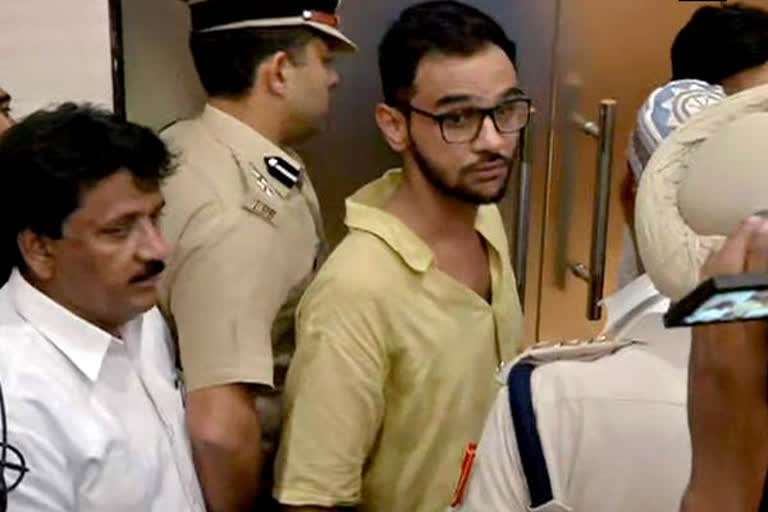New Delhi: Former JNU student Umar Khalid, arrested in a UAPA case related to the alleged conspiracy behind the riots here in February 2020, Monday contended before the Delhi High Court that the protests against the Citizenship Amendment Act were against an unjust law and it was in no way an act against the Sovereign. Khalid's counsel said several of the acts alleged or incidents cited against him by the police were not even qualifying as terror' and the protestors were not perpetuating violence as contemplated under the Unlawful Activities (Prevention) Act (UAPA).
A bench of Justices Siddharth Mridul and Rajnish Bhatnagar was hearing Khalid's plea challenging a trial court's order which had on March 24 dismissed his bail application in the case. Challenging the trial court's order dismissing his bail plea, Khalid's counsel contended that the special judge had said these were acts threatening the unity and integrity of India. He added that the protests were against an unjust law by persons who want to be part of the country and it is in no way an act against the Sovereign.
It is not perpetrating violence which Section 15 (terrorist act) of the UAPA contemplates, the counsel said. Who are we pointing this at? These are the people who said CAA is discriminatory and they want to be part of India, he said, adding that the protestors were opposing the alleged discriminatory criteria of granting or denying citizenship to a certain class of persons. While referring to a previous judgement, the lawyer said a terrorist act does not merely arise by causing disturbance of law and order.
During the hearing, Justice Mridul said as per precedents, terrorism is an act done with a view to disturb the even tempo of the society, create a sense of fear in the mind of a section of society, and was there any sense of fear instilled in anybody after the riots? To this, Khalid's counsel replied in affirmative and said the community most affected by the riots had that feeling of fear. He added that the alleged fear was not so grave and we should not fall in the trap of interpreting everything as terror. Regarding Khalid's alleged connection with Sharjeel Imam, the counsel said the two follow different ideologies and are not connected in any manner. They are divergent people with a different school of thought. Imam criticized a secular movement against CAA and I do not agree with it. I am being lumped with a person who calls for a deeply communal protest against CAA. There is no ideological meeting of minds, he argued.
